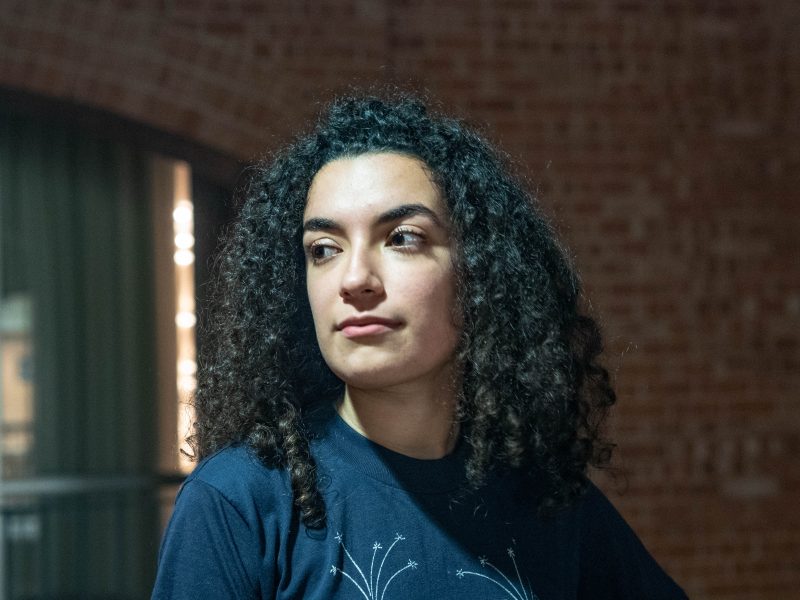The Tobacco 21 ordinance took effect in San Antonio on Oct. 1, 2018. The ordinance increased the age for sale of tobacco and vape products from 18 to 21 within San Antonio city limits. The ordinance does not apply to municipalities within the city limits, such as Alamo Heights.
Trinity has been a tobacco-free campus since Aug. 1, 2017, so the Tobacco 21 ordinance will not affect rules about tobacco usage on campus. However, the ordinance will affect many Trinity students under 21 who still purchase tobacco products.
“It still applies to higher education students because some of our students who get to us are seventeen,” said Katherine Hewitt, coordinator of Wellness Services. “This will affect our students’ access to be able to buy tobacco products off-campus. It’s just that one of the main reasons why this is a big issue in the first place is because older young adults, your 18-year-olds, were buying tobacco products and selling them or redistributing them to younger high school students, for example.”
Hewitt believes that the Tobacco 21 ordinance is very forward thinking
“It’s a controversial policy, so they know going into that they’re going to be faced with a lot of opposition,” Hewitt said. “I think when we’re championing the greater good and people’s health and safety, I think that’s so significant because you know you’re going to face a really hard road. I think that putting public health number one and profit number two is the best thing. We have been in those shoes before, so I sympathize.”
Hoyt Taylor, junior, uses tobacco products and does not feel personally affected by the policy as he is turning 21 soon. However, Taylor views limiting younger people’s access to tobacco products as a positive thing.
“As far as on the ground, young people’s access, I think it’s a good thing to limit the access that younger people have to nicotine products,” Taylor said. “It’s never a bad thing. We don’t want thirteen-year-olds with nicotine addictions. If the companies can’t keep the product out of the kids’ hands, I think that raising the age from 18 to 21 makes sense. I remember when I was like a fifteen-year-old, sixteen-year-old, I could always go to my eighteen-year-old friend and be like, ‘Hey, can you buy me a pack of smokes?’ ”
Others do not believe that the policy will be effective.
“I think curbing addiction is a great goal for society. However, I disagree that this should be attempted through government regulation,” James Burford, senior, wrote in an email. “For many young people, sourcing these products will remain possible, even with an age restriction. For example, the internet makes tobacco products highly accessible, and even young children are gaining internet access at increasingly younger ages. I believe that effectively all that will come of this is a dent in the wallets of the owners and operators of establishments that sell tobacco products.”
Angela Garcia, sophomore, will not be turning 21 until her senior year and was upset when she found out about the ordinance.
“I don’t think that the city is really going to be making a change,” Garcia said. “I have this firm belief that the more restrictions and laws you put on something, the more people are going to want to do it. The ordinance affects San Antonio, but I can go to Alamo Heights or Olmos Park, and I can go buy my own pack of cigarettes, which I’m probably going to do. I don’t think they’re solving anything, I just have to go out of my way a little bit more to get cigarettes.”
Hewitt also gave an update on how the tobacco-free Trinity policy has been received since its implementation. A post-policy survey was sent out to a sample of students as well as all faculty and staff in the spring of 2018. Ninety-eight percent of survey participants were aware of the tobacco-free policy, 64 percent supported the policy, 72 percent agreed that the policy has had a positive impact on overall health, and six people reported that the new policy influenced them to cut back or quit.
“Overall, we’re doing well,” Hewitt said. “There’s a lot of anecdotal feedback that comes my way which has been really positive about, you know, exposure to second-hand smoke has really gone down significantly, which is to be expected — it’s a policy. So people are being really respectful and abiding by the policy, which we really appreciate because it’s a public health matter essentially. It’s a health and safety issue.”
Those who are interested in quitting smoking can reach out to Katherine Hewitt at khewitt@trinity.edu. More information about the Tobacco 21 ordinance in San Antonio can be found on the city of San Antonio’s website.





